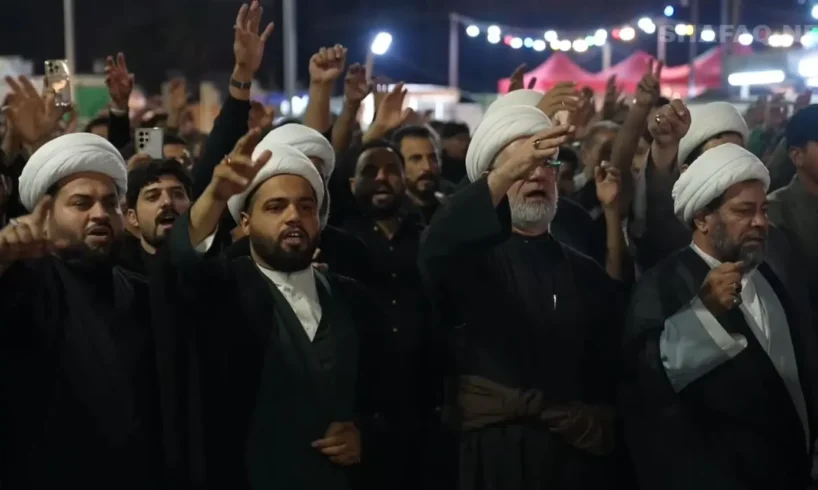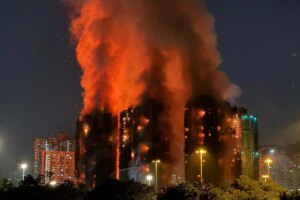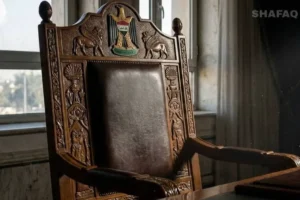
Shafaq News
On Basra’s
waterfront, the billboards for singer Mohammed Abdel-Jabbar’s cancelled concert
still hung over a space where a stage was meant to rise. The organizing company
withdrew after receiving threats, saying “songs can return, but lives do not,”
a line that captured the anxiety shaping cultural life in southern Iraq.
The dispute over a
single performance reflects a broader concern about who defines sacredness, who
draws the limits of joy, and whether Iraq’s public sphere is governed by
constitutional law or by the weight of tradition and social veto.
The Basra controversy
followed a similar scene in Nasiriyah days earlier, where Abdel-Jabbar
performed as part of a promotional event near the new airport. Families attended
in large numbers, seeking a reprieve from water shortages, unemployment, and
protest fatigue. Yet a small unidentified group tied to religious and tribal
networks denounced the event as incompatible with the city’s sanctity. Within
days, a provincial council member formally requested a ban on major concerts,
turning a cultural dispute into an administrative issue and pushing it from
social media into institutions of local governance.
Such reactions cannot
be understood in isolation from the broader character of Iraq’s south, a region
long shaped by strong religious authority, cohesive tribal structures, and
conservative social norms. Cities like Najaf and Karbala host the most
influential Shiite seminaries in the world, giving clerical voices significant
influence over political, social, and personal life.
Tribal systems also
play a central role in defining social conduct, resolving disputes, and
preserving cohesion, often reinforcing traditional norms. Family-centered
values, strict expectations for public behavior, and conservative attitudes
toward music, dress, and gender interaction remain more pronounced here than in
other regions. This does not erase the area’s cultural diversity, but religious
and traditional values still form the general framework within which public
life operates.
This dynamic differs
sharply from cities like Erbil or Al-Sulaymaniyah, where musical performances
and nightlife are woven into the mainstream cultural economy.
Nowhere is this
convergence of tradition and authority more institutionalized than in Karbala,
where the city’s “Sanctity Law” represents the most formal attempt to regulate
public behavior in Iraq. Proposed in 2012 and implemented in 2017 without
federal parliamentary approval, the regulation bans musical celebrations,
restricts clothing, and prohibits women without headscarves from entering the
city.
Legal experts have
consistently argued that the law lacks constitutional legitimacy; Article 61
grants legislative authority exclusively to Parliament. Nonetheless, the law
remains powerful because it is backed by tribal leaders, religious
institutions, and a social environment that accepts the principle of regulating
joy in the name of respect for sacred spaces.
As New Year’s Eve
approaches, Karbala would also face intensified enforcement as happened
previously. Majda al-Ardawi, head of the Sanctity and Religious Affairs
Committee, told Shafaq News that celebrations contradict the city’s identity,
insisting that “true Karbala natives” reject music and dancing. She advised
those wishing to celebrate to “go elsewhere,” linking the ban not only to
religious norms but also to regional tensions and the recent losses of
resistance leaders, which she argued make festivities inappropriate.
In 2024, authorities
shut down a newly opened restaurant within 24 hours because its opening
ceremony featured music and influencers — a swift move that reignited
long-standing debates over the city’s regulatory model.
The tensions
unfolding in Basra, Nasiriyah, and Karbala are part of a broader national
pattern. In 2021, Baghdad witnessed a dramatic confrontation after a concert by
Egyptian artist Mohamed Ramadan at Sindbad Land. Days after the performance,
protesters blocked the road to the venue and demanded an end to what they called
“festival-style” shows that violated Islamic morals. Under pressure from
demonstrators and Shiite political actors, the amusement park cancelled all
upcoming events and terminated contracts with the Egyptian organizing company.
The situation escalated when security forces fired live rounds into the air to
push back protesters gathered outside the gates. Banners denounced performers
as “followers of the devil,” reflecting how moral objections can rapidly take
on coercive force even in the capital — a city often perceived as more socially
diverse than the South.
Similar
confrontations have surfaced across the country over the past decade: the
uproar in 2019 over the West Asia Championship ceremony in Karbala Stadium
after women danced and a young violinist performed; the suspension of musical
events during the Babylon Festival in 2021 under clerical pressure; the threats
against organizers in Baghdad that caused multiple companies to halt concerts
entirely; and the cancellation of Saad Lamjarred’s event in 2022 following a
mixture of moral objections and public pressure.
Read more: The Shadow of the Sanctity Law falls over Karbala’s New Year’s eve
Sheikh Raad
al-Bahadli, head of the South Cultural Center, took part in the corniche
demonstration that preceded the cancellation of Abd Al-Jabbar’s concert. He
told Shafaq News that the action was motivated by “offering condolences on the
anniversary of the martyrdom of Fatima al-Zahraa, the daughter of the Prophet
Muhammad,” adding that the objection to concerts was not only about timing but
a principled stance because, in his view, Basra is “a Husseini and Islamic
province.”
Al-Bahadli stressed
that the protest was peaceful and that members of the Basra Provincial Council
shared their position, arguing that holding dance-style concerts in public
spaces leads to “openness and moral decay,” and that religious figures have a
duty to “enjoin good and forbid wrong.”
Artists insist that
cities like Basra are inherently plural, shaped by Christian, Sabean, and
foreign communities, as well as by decades of cultural exchange.
Fathi Shaddad, head
of the Artists Syndicate’s Basra branch, said that the province has, in his
view, a civil rather than religious character, and regularly receives tourists
and foreign visitors due to its port and its open access to the Gulf.
For Shaddad, the
large musical events held at Basra Sports City during the Gulf Cup proved that
the city is safe and fully capable of hosting artistic performances. “The
question of who was behind the attempt to block the recent concert remains
unanswered.”
Jabbar Joudi, the
head of the Iraqi Artists’ Syndicate, said that the actions leading to the
cancellation of concerts violate the constitution, which guarantees freedom of
opinion and expression, warning that continuing down this path could push the
country toward “cultural isolation, damage its public image, and shrink its
artistic and cultural space.”
Joudi pointed to
Article 38 of the constitution, which obliges the state to protect freedom of
expression, the press, assembly, and peaceful protest.
Opponents of concerts
often cite Article 2, which prohibits legislation contradicting Islamic
principles, even though the constitution does not explicitly restrict music or
public celebration.
From a human rights
perspective, Ali al-Abbadi, head of the Iraq Center for Human Rights, warned
that the organizing company’s announcement about receiving threats sets a
dangerous precedent for intellectual and civic diversity in Basra, noting that
the concert date did not coincide with any religious occasion, “reinforcing the
impression that certain religious groups are trying to impose guardianship over
the city.”
“No party has
authority over citizens, and that Basra is a city of coexistence and a lover of
peace.” What happened, he said, “was an unfortunate incident that should not be
repeated.”
Basra Provincial
Council member Ali al-Abbadi added that the priority should be combating
corruption, extortion, and the theft of public funds rather than restricting
freedoms and imposing opinions on others. He emphasized that holding concerts
in private gardens does not violate the law or threaten social peace.
For many analysts,
the issue is no longer whether a musical event is appropriate on a given day.
It is about who governs the public sphere — elected institutions or informal
religious and social forces. Each cancellation strengthens the perception that
cultural space is shrinking, especially where provincial councils or local
networks assert authority through regulations that bypass parliamentary
processes. The more these disputes are settled through pressure, threat, and
social veto, the weaker the role of constitutional institutions becomes in
shaping public life.
At the same time,
defenders of traditional norms argue that respecting religious sensibilities is
essential for social cohesion, especially in a region where sacred history,
communal identity, and tribal structures remain central to daily life. They
emphasize that cultural freedom should not disregard the emotional weight
carried by the south’s religious heritage.
As stages remain
unbuilt in Basra, as New Year’s Eve falls silent in Karbala, and as Baghdad’s
entertainment venues second-guess whether to host major events, Iraq continues
to wrestle with the same unresolved question:
Who decides the
rhythm of life in Iraq — the constitution that guarantees freedom, or the
voices that need only declare something “haram” to extinguish the lights before
the music begins?
Written and edited by Shafaq News staff.





